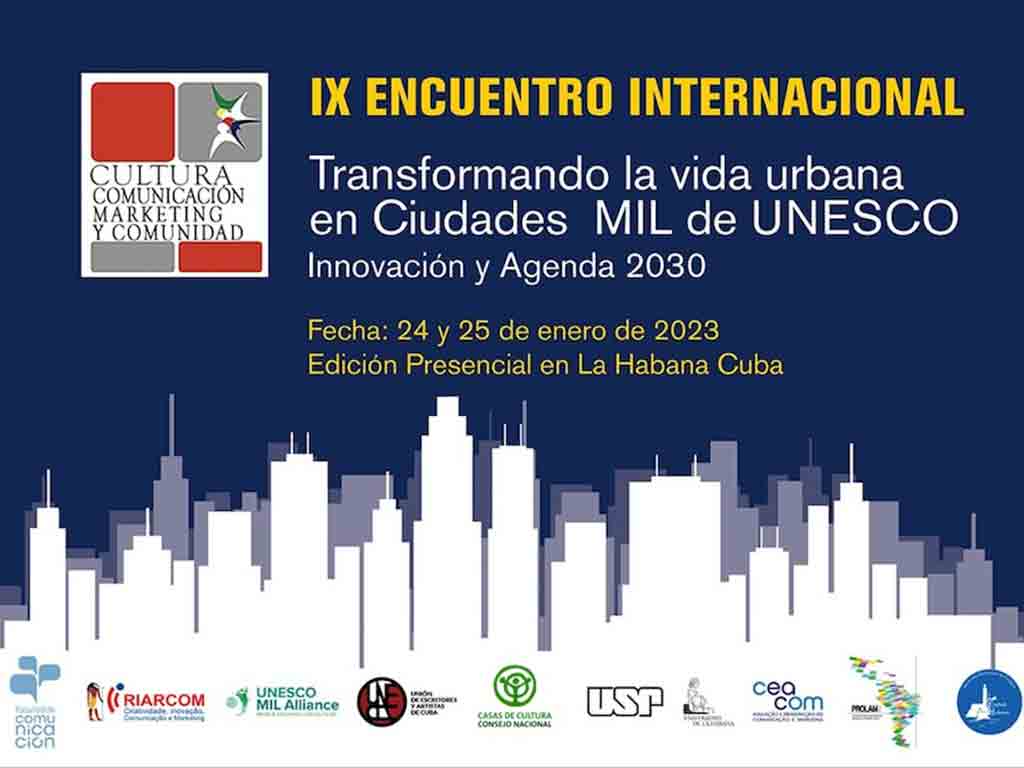Under the motto “Transforming urban life at UNESCO (United Nations Educational, Scientific and Cultural Organization) Thousand Cities, innovation and 2030 Agenda: Communication and ethics of diversity in post-pandemic cities,” the event promotes reflection on the contribution of marketing in the sociocultural projects of urban communities.
In his speech, the honorary president of the Union of Writers and Artists of Cuba (UNEAC), Miguel Barnet, pointed out that it is necessary to educate, train and empower city dwellers of all ages and social classes, as well as the different stakeholders, from the most traditional to the least traditional, to establish cooperation networks.
“The framework of Thousand Cities also implies making a critical, ethical, and truly creative and responsible exercise of the new infrastructures and technologies that contemporary cities offer,” added Barnet, who is also a poet and ethnologist.
The meeting, which will conclude on Wednesday, also consists of master lectures, presentation of works, exhibitions by plastic artists, fashion shows, as well as the delivery of the Urban Spaces aspiring to the Thousand Cities award.
The meeting addressed the fight against media manipulation, the creation of fake news in the digital age and the proliferation of hate speech, while hosting the presentation of the volume The UNESCO Thousand Cities Network, signed by authors from all five continents and produced by Cuba’s Editorial Pueblo y Educación.
The Thousand Cities or AMI Cities (Media Literacy) are cities that use new technologies and innovation, but with ethics and respect for diversity, as well as for vulnerable groups, trying to transcend cultural barriers in communication of gender, religion, geographical origin and language, according to the bases of the initiative.
jg/ro/mml/yap









